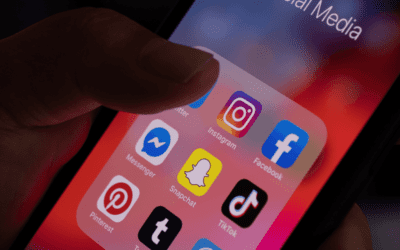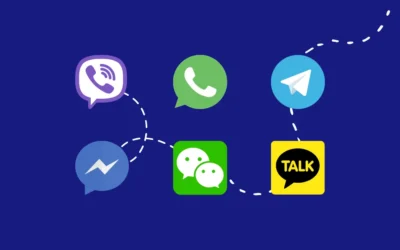The rollout of 5G networks is set to revolutionize mobile technology, bringing faster speeds, lower latency, and more reliable connections. By 2025, these advancements will dramatically reshape the mobile app landscape, offering users and developers new possibilities. Here’s a look at how 5G will impact mobile apps in the coming years.
1. Lightning-Fast Speeds for Seamless Experiences
One of the most anticipated benefits of 5G is its unprecedented speed. With download speeds up to 100 times faster than 4G, mobile apps will be able to offer smoother, more efficient experiences. Streaming high-definition video, live gaming, and virtual reality (VR) will become more accessible, as users will no longer be hindered by buffering or low-quality connections. For apps like YouTube, Netflix, and TikTok, 5G will enable flawless, high-definition streaming without interruptions, even in densely populated areas.
2. Real-Time Augmented and Virtual Reality Experiences
5G’s ultra-low latency, or the time delay between sending and receiving data, is crucial for real-time applications like augmented reality (AR) and virtual reality (VR). Apps that rely on these technologies—like gaming, navigation, and shopping—will benefit from 5G’s ability to deliver real-time interactions with little to no delay. For instance, AR-based apps like Snapchat and Instagram could offer enhanced, interactive filters and experiences, while VR apps will provide more immersive and responsive environments.
3. Smart Cities and IoT Integration
As 5G enables the growth of the Internet of Things (IoT), mobile apps will play a key role in managing connected devices within smart cities. With faster, more reliable connections, apps will be able to control everything from smart homes to autonomous vehicles. Expect to see apps that help manage everything in your connected environment, from adjusting the thermostat in your home to optimizing traffic flow in a city, all in real-time.
4. Enhanced Mobile Gaming Experiences
Mobile gaming will undergo a major transformation with 5G technology. Mobile games will become more graphically intense and feature-rich, offering console-quality gaming experiences directly on smartphones. Cloud gaming, like Xbox Cloud Gaming and Google Stadia, will become more popular, as 5G enables users to stream games without the need for high-end hardware, reducing lag and improving responsiveness.
5. More Interactive and Immersive Social Media
5G will also have a major impact on social media platforms. Apps like Instagram, Snapchat, and TikTok will integrate more AR and VR features, allowing users to engage in more immersive, interactive experiences. Live streaming will be smoother, and new features like 360-degree video and holographic communication could become more mainstream, offering a next-level social interaction.
6. Improved Cloud-Based Apps
5G will significantly improve the performance of cloud-based apps, especially those that rely on large-scale data processing, like design software, video editing tools, and enterprise applications. With reduced latency and faster data transfer speeds, users will experience faster synchronization and real-time collaboration in cloud-based productivity apps like Google Workspace, Microsoft Office 365, and others.
7. New Possibilities for Healthcare Apps
5G’s ability to transmit data in real-time will also boost healthcare applications, including telemedicine, remote monitoring, and augmented diagnostics. Healthcare apps will enable doctors to perform more accurate and timely diagnoses through real-time data sharing and virtual consultations, improving healthcare accessibility.
A More Connected and Efficient Future
By 2025, 5G will enable mobile apps to function at their fullest potential, making the digital world faster, more interactive, and more immersive than ever before. Whether in gaming, social media, healthcare, or smart cities, 5G will provide the infrastructure needed to support next-generation apps, ultimately changing the way we live, work, and play. As developers leverage 5G capabilities, users can expect a smoother, more connected experience that opens up exciting new possibilities for mobile technology.




